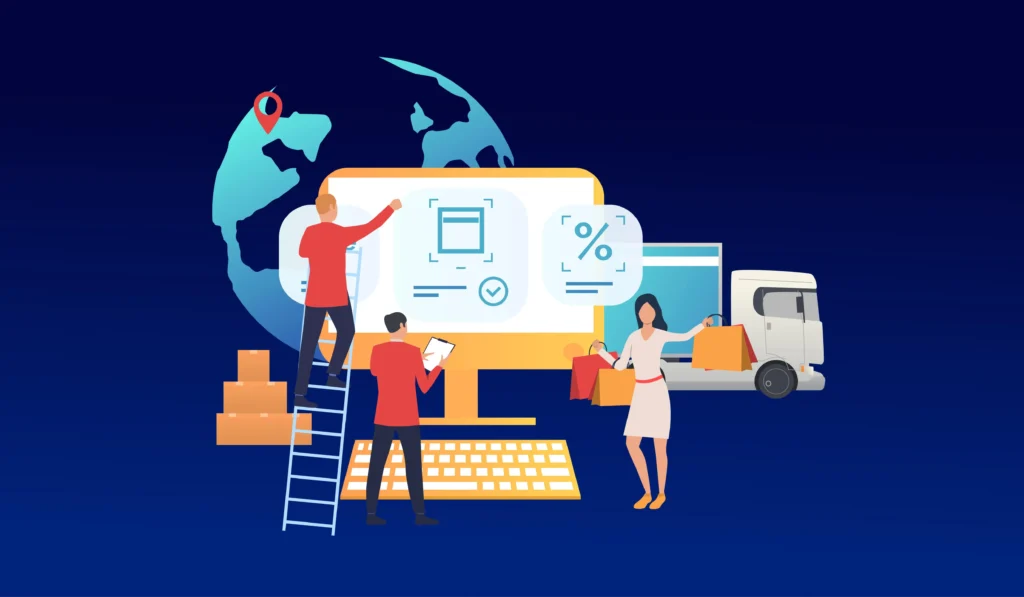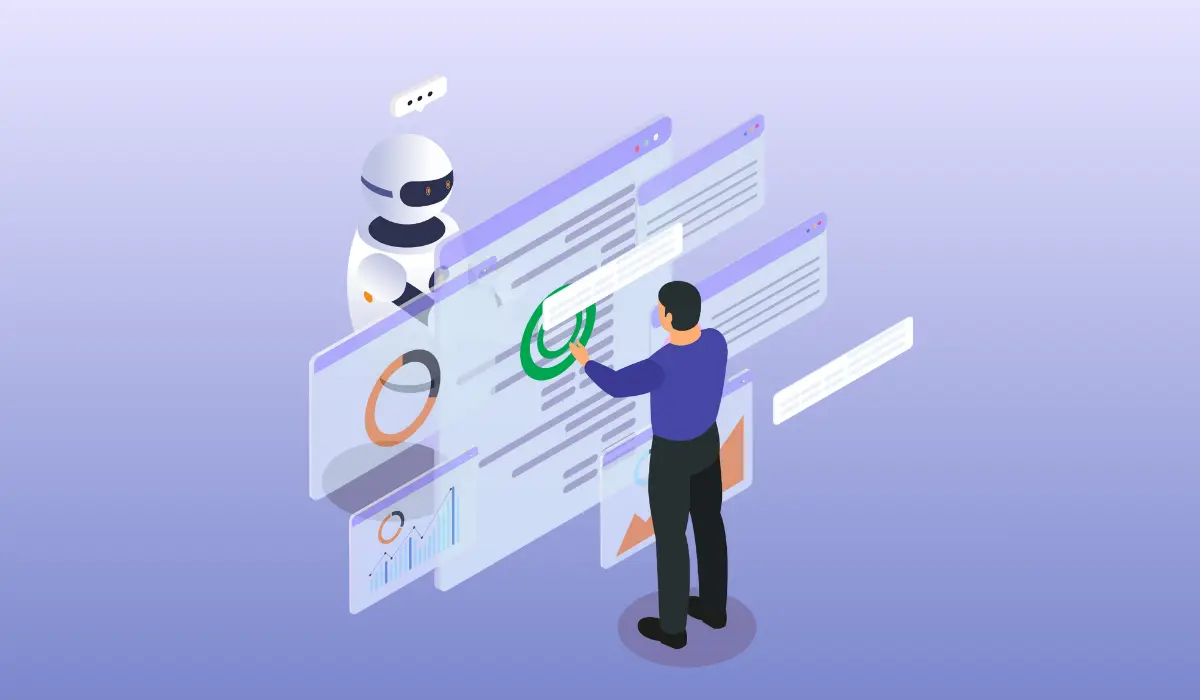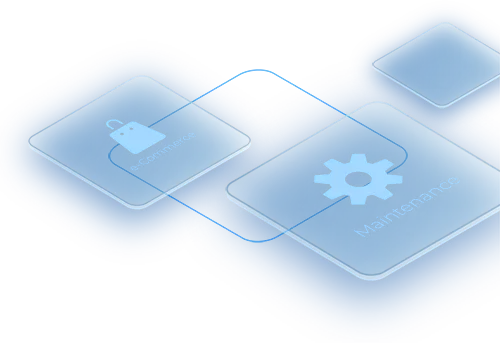
Why You Need ERP In Logistics and Transportation?

Why You Need ERP In Logistics and Transportation?
Logistics and transportation play a critical role in making sure goods and services are properly delivered across various regions.
With globalization and the rapid growth of e-commerce, effective management in this sector has become crucial for business success.
However, challenges such as delays, miscommunication, and inefficient resource allocation can lead to operational setbacks.
These issues not only impact revenue but can also harm a company’s reputation and result in dissatisfied customers.
But the use of ERP, or Enterprise Resource Planning, has revolutionized the way business can easily handle logistics and transportation.
The need for ERP in logistics and transportation has grown significantly due to the issues in managing supply chains, warehousing, and transportation services.
An efficient system like ERP can help your logistics and transportation business by improving the accuracy, simplifying the planning and reducing the operational gaps.
Investing in ERP systems for logistics is no longer optional for companies seeking competitive advantages in a fast-evolving market.
Companies using such systems witness measurable improvements in their operations and customer satisfaction.
Content Index
- What is ERP in Logistics & Transportation?
- Key Benefits of ERP in Logistics and Transportation
- Common Challenges in Logistics & Transportation Without ERP
- How ERP Solutions Solves Challenges in Logistics and Transportation
- Top Features to Look for in a Logistics & Transportation ERP
- Future Trends About Using ERP in Logistics & Transportation
- Conclusion
What is ERP in Logistics & Transportation?
ERP in logistics and transportation refers to a centralized software system designed to manage and integrate all business processes within this sector.
It provides a unified platform for handling tasks such as order management, inventory control, vehicle tracking, and delivery scheduling.
ERP solutions enable real-time data exchange across departments, ensuring that all stakeholders remain informed and operations proceed efficiently.
Logistics and transportation ERP software help companies to gain deeper insights into their processes, fostering improved decision-making.
Key Benefits of ERP in Logistics and Transportation
The need for ERP solutions in logistics and transportation is growing due to increasing complexities and demands.
The system brings numerous advantages that can transform operations across the supply chain management.
Below are the key benefits explained in detail to help you understand their role better.
Enhanced Visibility Across Operations
With ERP systems, real-time data access across various departments becomes possible, allowing partners to make informed decisions effortlessly.
The comprehensive overview eliminates confusion and keeps every team member aware of progress at every stage.
Cost-Effective Operations
ERP systems minimize unnecessary expenditures by automating repetitive tasks, reducing manual errors, and improving operational efficiency.
The savings generated can be reinvested to improve other business areas, strengthening overall performance.
Improved Customer Satisfaction
ERP systems enable businesses to meet delivery schedules, provide accurate tracking, and maintain consistent service quality.
These benefits collectively result in higher customer trust and better satisfaction levels, which are vital for long-term success.
Better Resource Management
ERP systems contribute significantly by handling inventory, assets, and personnel without unnecessary delays or disruptions in operations.
It prevents overuse of resources, saving time and costs for businesses.
Improved Communication Channels
One of the standout benefits of ERP systems is their ability to facilitate seamless communication between departments, partners, and clients.
The integration eliminates dependency on multiple tools, simplifying interactions across all levels.
Regulatory Compliance Made Easier
Keeping up with local and international compliance requirements is vital for any logistics and transportation company.
ERP systems offer features that track regulations, reducing the risk of violations and penalties.
Seamless Integration with Third-Party Systems
ERP systems support easy integration with third-party logistics providers, payment gateways, and tracking platforms.
This flexibility helps businesses adapt to changing demands and maintain smooth operational workflows.
Accurate Data Analysis and Reporting
ERP systems provide valuable insights by analyzing data collected from operations, helping companies predict trends and assess performance accurately.
This approach aids future planning and growth strategies.
With the right ERP Syatem like EBR’s, companies can deliver services efficiently, keeping clients satisfied while achieving maximum operational excellence.
Common Challenges in Logistics & Transportation Without ERP
Logistics and transportation businesses face significant challenges when operating without an ERP system.
These challenges can lead to inefficiencies, increased costs, and reduced customer satisfaction.
Understanding these obstacles is essential for businesses seeking to improve their operations and deliver better outcomes.
Recognizing these issues can also provide valuable insight into the need of implementing an ERP system in logistics and transportation.
Fragmented Data and Communication Gaps
Without an ERP system, businesses struggle to maintain cohesive data management across departments.
Different teams often rely on standalone tools, making it difficult to exchange information efficiently.
Miscommunication can lead to errors in scheduling, dispatching, and inventory management, ultimately resulting in delays and customer dissatisfaction.
Difficulty in Tracking Shipments
Accurate shipment tracking is a significant hurdle when processes are handled manually or through disconnected systems.
This challenge becomes more pronounced when dealing with multiple carriers or international shipments.
Customers demand real-time updates, and the inability to provide timely information negatively impacts the company’s reputation.
Higher Operational Costs
Handling logistics operations without an ERP increases the likelihood of duplicate tasks, errors, and wasted resources.
Manual processes require additional manpower, and mistakes in invoicing or shipment planning can escalate costs rapidly.
The lack of efficiency drains profitability and restricts business growth.
Limited Insights for Decision-Making
Data plays a pivotal role in making informed decisions, but its potential is lost when scattered across various systems.
Without consolidated reports, management struggles to identify trends, predict demand, or allocate resources effectively.
This limitation hinders long-term strategic planning and the ability to stay competitive.
How ERP Solutions Solves Challenges in Logistics and Transportation
The need for ERP in logistics and transportation arises from its ability to address the above-mentioned challenges effectively.
ERP solutions resolve fragmented data issues by centralizing operations and offering real-time insights.
Companies can track shipments with ease, ensuring transparency and better communication with clients.
ERP systems automate repetitive tasks, thereby reducing operational costs and increasing efficiency.
They also provide comprehensive reporting tools, which allow decision-makers to rely on actionable insights.
ERP in logistics enables improved route planning and load optimization, reducing fuel costs and improving delivery times.
By analyzing historical data and patterns, businesses can plan more efficient routes and minimize disruptions, providing more reliable services to customers.
ERP systems enhance communication between different stakeholders in the supply chain, allowing for smoother coordination between vendors, warehouses, and transporters.
By addressing complex operational challenges, ERP helps businesses to provide better service, reduce costs, and stay competitive in an ever-evolving market.
Top Features to Look for in a Logistics & Transportation ERP
Selecting the right ERP system requires careful consideration of its features.
A well-selected system will help you understand the specific needs of ERP in the logistics and transportation industry.
For logistics and transportation services, the following features are essential:
Real-Time Shipment Tracking
Real-time shipment tracking is a fundamental feature that any logistics ERP should offer.
This feature allows businesses to track goods in transit, providing both internal teams and clients with up-to-date shipment statuses.
Having this feature reduces delays and improves communication with partners, that is crucial for maintaining customer satisfaction and operational efficiency.
Fleet Management Capabilities
For businesses involved in transportation, effective fleet management is a top priority.
A reliable ERP system should incorporate fleet management tools that enable companies to monitor vehicle performance, maintenance schedules, fuel consumption, and route planning.
These capabilities help businesses lower operational costs and enhance their fleet’s efficiency and lifespan, improving overall logistics operations.
Inventory and Warehouse Management
Inventory and warehouse management are essential components of logistics.
A logistics ERP should facilitate seamless tracking of inventory levels across multiple warehouses and distribution centers.
This feature helps businesses maintain accurate stock records, reduce order fulfillment errors, and gain insights into warehouse performance and product movement.
The ability to monitor warehouse operations helps improve accuracy and speed in product handling.
Scalability and Customization
As logistics businesses grow and evolve, their ERP system must be able to adapt.
A good ERP solution should offer scalability and customization, allowing businesses to adjust features as their requirements change over time.
This flexibility ensures the ERP system meets business needs and supports future growth without frequent replacements.
Regulatory Compliance Tools
Logistics and transportation businesses operate under various regional and international regulations, making compliance an important consideration.
An ERP system that includes regulatory compliance features can help companies stay up-to-date with changing laws and industry standards.
These tools automate compliance checks, document management, and reporting, reducing the risk of legal issues and penalties for global logistics companies.
When considering the need for ERP in logistics and transportation, it is important to focus on these critical features.
They improve operational capabilities and contribute to growth, efficiency, and long-term success in the competitive logistics sector.
Future Trends About Using ERP in Logistics & Transportation
The future of logistics and transportation lies in the integration of ERP systems with emerging technologies.
Artificial intelligence, blockchain, and IoT are expected to redefine the need for ERP in logistics and transportation by improving automation and data transparency.
Predictive analytics powered by ERP will play a major role in managing supply chains and reducing delays.
Cloud-based ERP solutions will dominate, offering scalability and remote accessibility to logistics businesses.
Conclusion
ERP is an indispensable tool for modern logistics and transportation companies seeking efficient operations and improved customer experiences.
By addressing industry-specific challenges, ERP helps businesses stay competitive and grow sustainably.
The need for ERP in logistics and transportation is evident for companies aiming to manage their operations effectively.
Investing in the right ERP solution can help companies to meet growing demands and deliver exceptional service.
Choose the best ERP solution and transform your logistic and transportation operations to new heights!
Explore these topics to gain a thorough understanding of ERP systems.
Let's Connect!
Are you currently exploring software solutions for your business? 🤔
Great! What’s the single biggest challenge you’d like a software solution to solve for your business? 🎯
💡 Suggested Solution Ideas:
Just one more step! Share your details so our experts can connect with you personally and discuss tailored solutions. 🤝
Thank You for Connecting! 🎉
We've received your information and a specialist will be in touch with you very shortly to discuss how we can help your business thrive.
In the meantime, feel free to browse our resources or reach out if you have immediate questions.
Understood! 🙏
No worries if you're not exploring software solutions right now. Our door is always open if your needs change!
Feel free to explore our other offerings or connect with us anytime.
Featured






